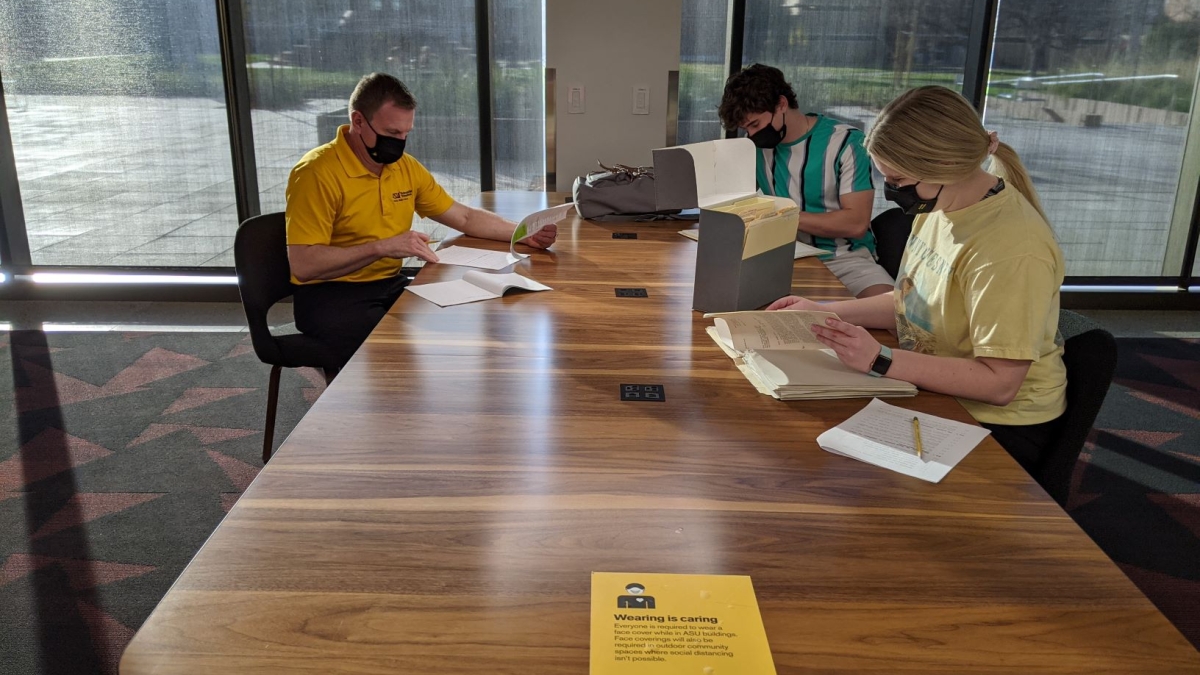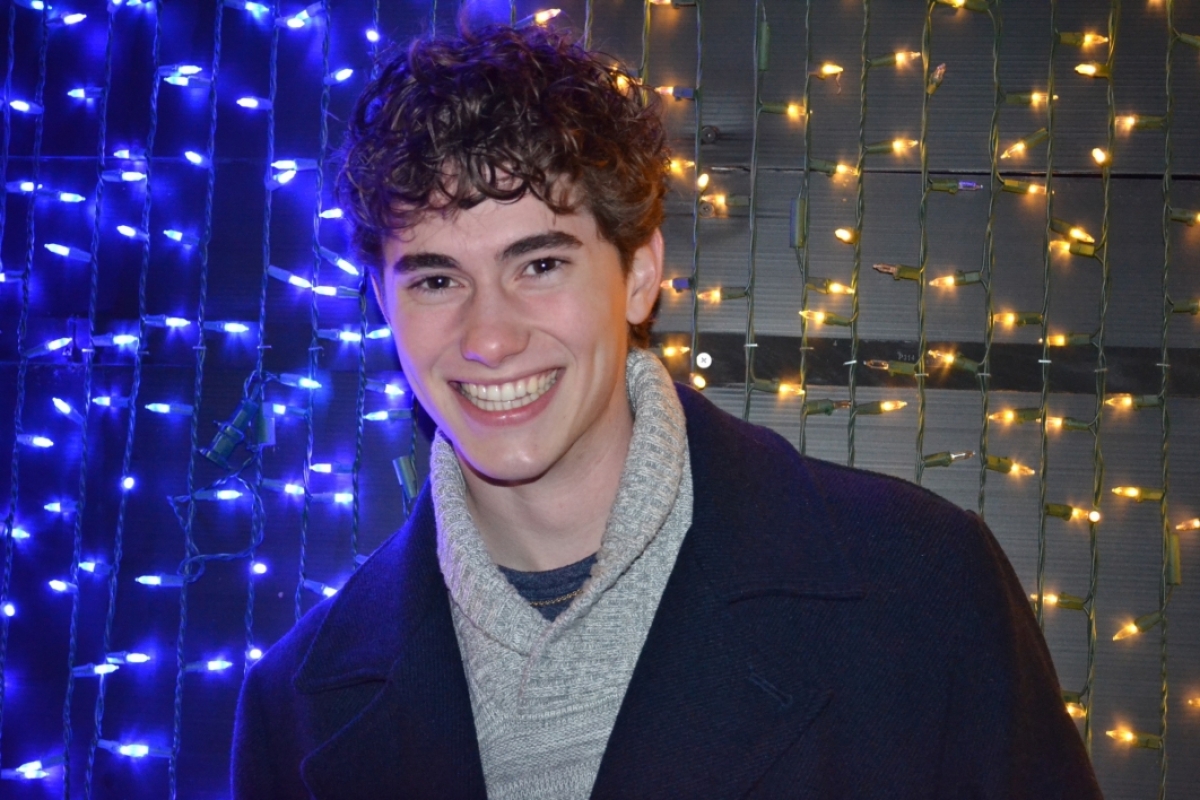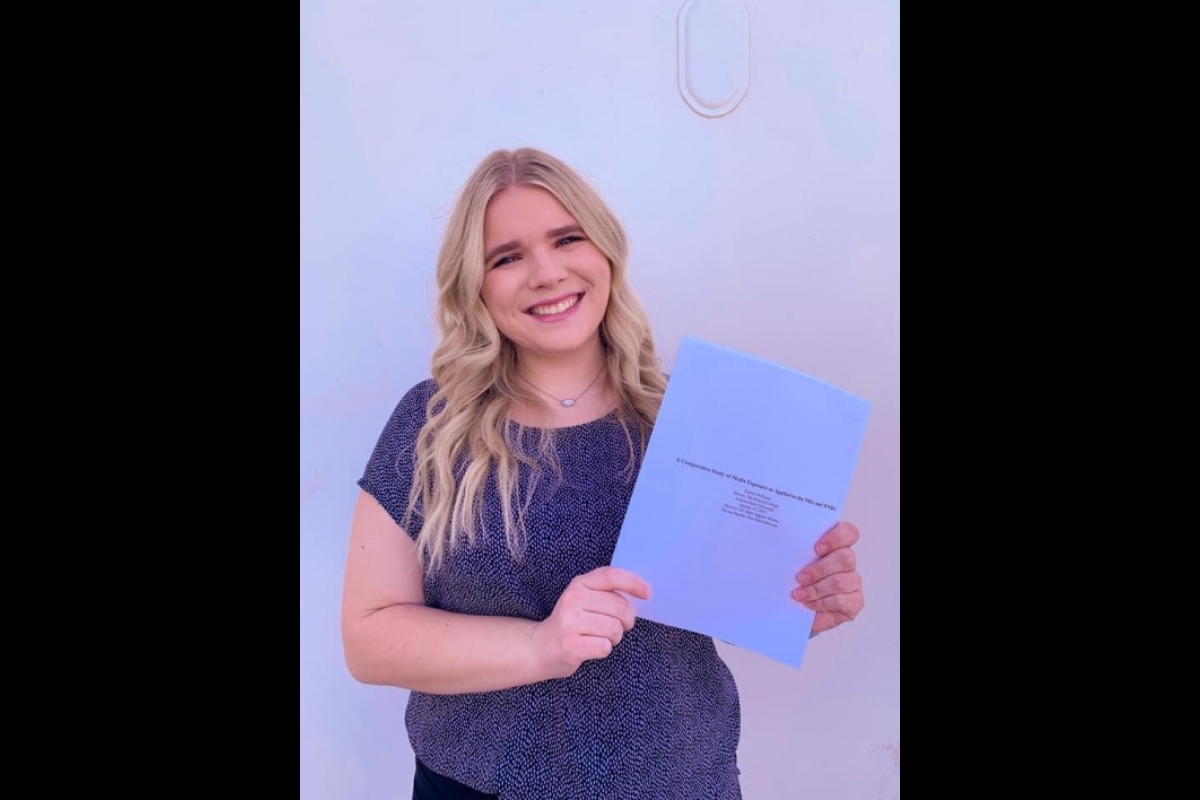ASU Library archives a trove of information for students' honors research project

Gregory Broberg, lecturer in the School of Social Transformation, works with Barrett, The Honors College students Nicolas Ilardi and Rachel Williams on an honors research project focused on the Hillside Strangler case. They examined documents and artifacts from the case in the ASU Library Distinctive Collections.
Nicolas Ilardi, a freshman in Barrett, The Honors College at Arizona State University, is a fan of procedural crime television shows such as "CSI: Crime Scene Investigation" so he thought it would be interesting to take a class called Homicide and Serial Killers this semester.
His interest in crime scene investigation and forensics really peaked when, as part of the class, he got the chance to complete an honors contract research project on the real-life case of the Hillside Strangler.
The project, which also involved fellow Barrett student Rachel Williams, a senior sports business and marketing major, was done under the direction of Gregory Broberg, lecturer in the Arizona State University School of Social Transformation, and focused on analyzing primary source information from the ASU Library Distinctive Collections and Archives.
The Hillside Strangler case involved cousins, Kenneth Bianchi and Angelo Buono Jr., who were convicted of killing 10 women and girls in Los Angeles in the late 1970s.
The materials comprising the Hillside Strangler collection were donated to the ASU Library by author Ted Schwarz. The collection contains materials Schwarz amassed while doing research for his book on the case, including Bianchi's correspondence and diaries, his medical history, transcripts of doctors' interviews with him and police interviews, forensic reports, psychological evaluations, news clippings, magazine articles and materials related to Schwarz's book.
Broberg said he, Ilardi and Curtis delved into letters Bianchi wrote to his family, as well as psychological and forensic reports that provided detailed accounts of his childhood, including his early-age adoption — information that represents actual evidence of processes and concepts discussed in his Homicide and Serial Killers course. Broberg will use information gleaned from their research when he teaches the course next spring.
“Being able to hold a letter this serial killer (Bianchi) wrote years ago is surreal,” Ilardi said.
Williams said she enjoyed applying what she learned in class to the project.
“Seeing real-world and firsthand information makes it more interesting. Applied learning is super important,” she said.
Broberg said he enjoys working with honors students on contract and thesis projects, helping them hone their research and analytical skills.
“It is always rewarding to work directly with Barrett Honors students. In the case of Nico and Rachel, they helped me uncover some of the most intimate details about the serial murderer, Ken Bianchi,” Broberg said.
“Even more important, we were able to accomplish this work without leaving the ASU Tempe campus. The ASU Library’s Distinctive and Special Collections contain a treasure trove of primary source material. Nico, Rachel and I sat for hours combing through Bianchi’s personal letters, police interviews, psychological and forensic reports. In the end, we could have filmed an episode of "CSI" with all the information we collected. I am so looking forward to previewing this new course material in my JUS207-Homicide and Serial Killers course in spring 2022.”
ASU’s Distinctive Collections and Archives offers students, faculty, researchers and the public access to rare and unique materials held in the university library, said Julie Tanaka, curator of rare books and manuscripts.
Tanaka said Distinctive Collections and Archives staff offer a variety of services including instruction sessions, reference assistance and workshops, and also install exhibits that are open to the public.
“We are in the process of expanding our services in order to provide more access, both in-person and online, to our collections and to better support everyone interested in our collections,” she said.
Students can access Distinctive Collections and Archives resources in several ways:
- Ask an Archivist online reference service.
- Distinctive Collections website.
- Arizona Archives Online (check the box next to ASU to limit the search to ASU.).
- ASU Digital Repository.
When students find items they would like to see, they can submit their request through Ask an Archivist and schedule an appointment to view the items in the Wurzburger Reading Room.

